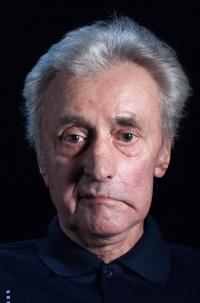I had no reason not to participate in communism-building

Stáhnout obrázek
František Ducháček was born on 22 June 1940 in a small village of Vitějeves. His family was poor, his father had five siblings and in order to buy them out and obtain a small family house he fell into debt for the rest of his life. The family made a living as farmers. František graduated from a mechanization school in Strážnice and found a job in the State Technical Supervision institution, overseeing agricultural collectives. He went through several workplaces. At the state farm in Březová he became the head of the local Communist Party unit. He agreed with the communist ideology, believing that under communism nobody would have to live in destitution and sweat anymore, as his parents did. He underwent an internship at the district committee of the Communist Party in Svitavy and then was named the district agricultural secretary which he did for seventeen years. Despite staying faithful to the communist thought, soon after the November 1989 revolution he went into business. He privatized small shops and canteens and established a fur animal farm.

